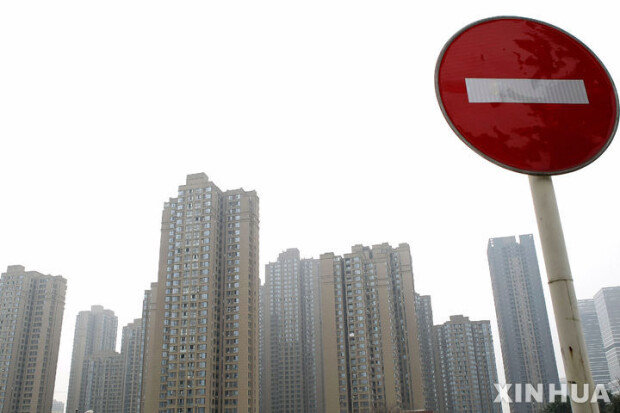China to inject 340 trillion won in loans to support real estate sector
China to inject 340 trillion won in loans to support real estate sector
Posted October. 18, 2024 07:56,
Updated October. 18, 2024 07:56

The Chinese government will provide an additional 1.77 trillion yuan (340 trillion won) in bank loans this year to financially troubled blue-chip real estate companies on a special "white list." This move comes as China faces growing concerns about meeting its initial target of 5% gross domestic product (GDP) growth for the year amid a slowing economy. In recent months, China has taken aggressive steps to stimulate growth, including reducing the reserve requirement ratio on September 24, announcing new infrastructure spending, and expanding government bond issuance on October 8.
“We will expand the white list of housing projects eligible for financing to 4 trillion yuan by the end of the year,” said Ni Hong, China’s Minister of Housing and Urban-Rural Construction, at a press conference on the same day. Beijing introduced the white list for the real estate sector in November last year, providing banks with guidance to support these select companies financially. By mid-December, loans granted to the companies on the list had reached 2.23 trillion yuan, with an additional 1.77 trillion yuan expected to be injected by the end of the year.
“The three-year correction has bottomed out and started to rise, with major cities across the country showing signs of recovery in early October,” Ni said. However, analysts have expressed skepticism, noting that the measures fall short of the direct financial support markets had anticipated from the central government. “Investors have been disappointed by the measures, which have placed the responsibility for providing more funding on banks and local governments, rather than the central government,” Bloomberg reported.
China’s broader economic outlook remains uncertain. Third-quarter GDP growth is expected to be around 4.4%, according to Caixin, while Bloomberg has forecast a slightly higher 4.5%. Both estimates are down from the 4.7% growth rate recorded in the second quarter, marking the slowest quarterly growth so far this year.
Chul-Jung Kim tnf@donga.com
Headline News
- ‘Korean THAAD’ L-SAM successfully developed in 10 years
- Pres. Yoon’s approval rating falls back to 10% range
- ‘Commercial Code amendments could harm capital market amid uncertainty’
- Prosecutors conduct search and seizure for industrial complex intervention allegations
- Democratic Party pushes amendment for special prosecutor







